CBD for Cannabinoid Hyperemesis Syndrome
Estimated reading time: 12 minutes
- What is Cannabinoid Hyperemesis Syndrome?
- The Symptoms of CHS
- The Link to Cannabis Use
- Understanding CBD
- How CBD May Help with CHS
- CBD Products for CHS
- Best CBD products for CHS
- IS CBD safe for Cannabinoid Hyperemesis Syndrome?
- Consultation with a Healthcare Professional
- Responsible CBD Use
- Conclusion
- FAQ – CBD for CHS
What is Cannabinoid Hyperemesis Syndrome?
Heavy and prolonged cannabis use often causes Cannabinoid Hyperemesis Syndrome (CHS). CBD for Cannabinoid Hyperemesis Syndrome? Contradicting? This condition (CHS) features recurrent episodes of severe nausea, vomiting, and abdominal pain. While cannabis has its upsides like potential therapeutic effects, you shouldn't overlook possible downsides such as CHS.
The Symptoms of CHS
CHS typically presents in three phases:

1. Prodromal Phase
- Nausea: Individuals in the prodromal phase may experience mild, persistent nausea.
- Morning Vomiting: Many CHS sufferers report vomiting in the morning as a distinctive symptom.
- Abdominal Discomfort: Some individuals may experience discomfort in the abdominal area.
2. Hyperemetic Phase
- Severe Nausea and Vomiting: During this phase, nausea becomes intense, often leading to frequent vomiting.
- Dehydration: Excessive vomiting can result in dehydration, requiring medical attention.
- Inability to Eat: Sufferers may find it challenging to consume food due to severe nausea.
3. Recovery Phase
- Symptom Relief: In this phase, symptoms start to subside, and individuals gradually recover.
- Resumption of Cannabis Use: Paradoxically, some individuals may resume cannabis use, leading to a cycle of symptoms.
The Link to Cannabis Use
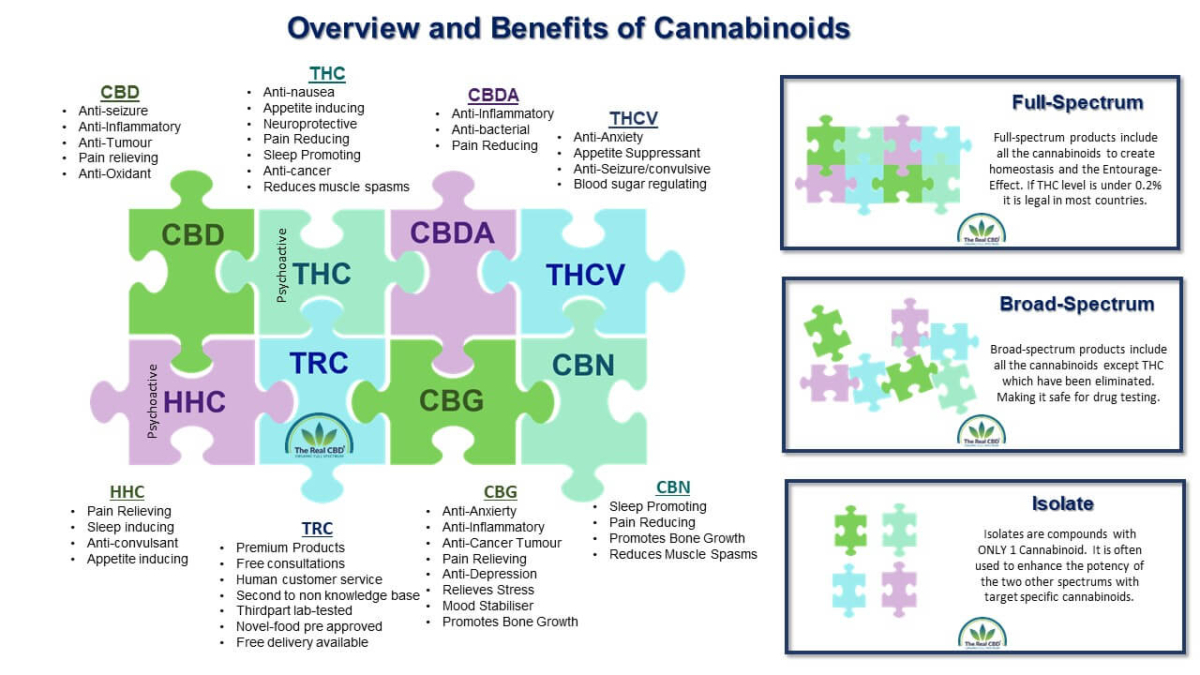
CHS is mostly associated with long-term, heavy cannabis use. It is important to understand that not everyone who uses cannabis will develop this syndrome. However, individuals who do may experience relief from their symptoms when they stop using cannabis.
The Role of Cannabinoids
Cannabis contains various cannabinoids, with THC (tetrahydrocannabinol) and CBD (cannabidiol) being the most well-known. THC is the psychoactive compound responsible for the “high” cannabis creates. CBD is non-psychoactive and has gained attention for its medicinal doings.
THC and CHS
Tetrahydrocannabinol play a significant role in the development of CHS. It's thought that excessive THC consumption may trigger CHS symptoms. However, we need more research to fully understand the relationship between this and C.
CBD and CHS
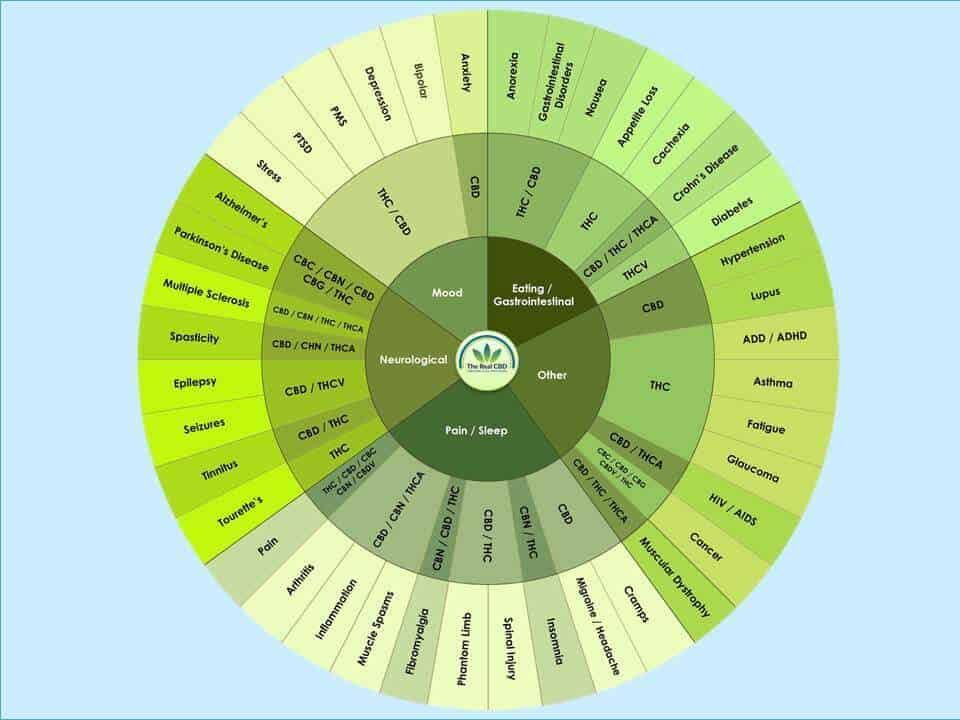
On the other hand, CBD, one of the many cannabinoids found in the cannabis plant, does not have psychoactive effects like THC. At The Real CBD, we focus on full-spectrum whole plant products, including CBD, for their potential healing properties. CBD has gained fame for its potential to help various conditions without the intoxicating effects of THC.
CBD's role in helping CHS symptoms is a fascinating topic! While most people link CHS directly to cannabis use, there's a buzz about how CBD, the chill sibling in the cannabis family, might help ease those nasty symptoms. Keep an eye out for more research on this, as it could open new doors for treating CHS without the high!
Understanding CBD
CBD is like the star player on a football team that's making waves but doesn't hog the limelight. It's famous for its healing mojo, tackling everything from stress to pain, all without that mind-bending buzz you get from THC. So, you can reap the health benefits without feeling like you're on cloud nine, unless you want to be, of course!
How CBD May Help with CHS
While research on CBD's specific effects on CHS is in its early stages, several studies suggest that CBD provide relief for CHS symptoms:
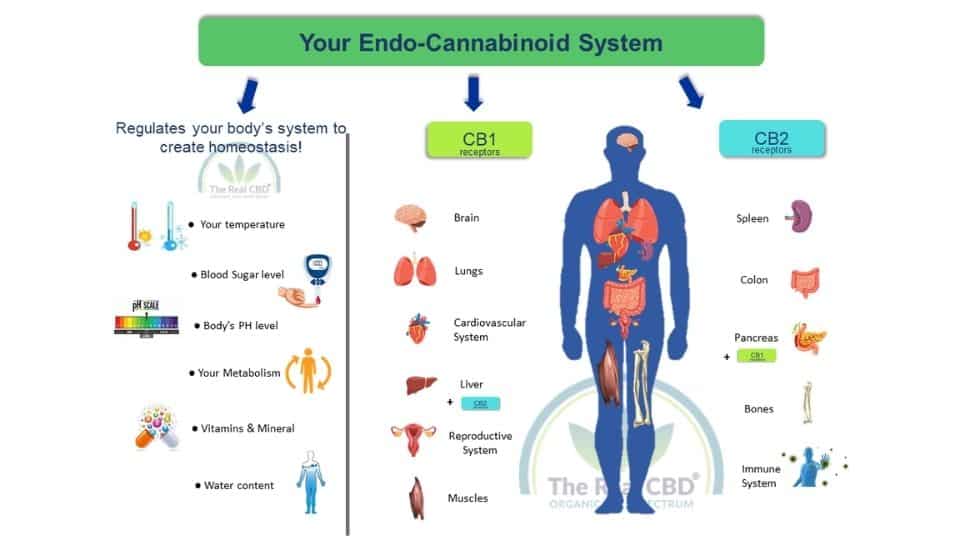
1. Anti-Nausea Properties
CBD has been studied for its anti-nausea and antiemetic (vomiting prevention) effects. It may interact with serotonin receptors in the brain, which play a crucial role in regulating nausea and vomiting. This interaction could potentially alleviate the severe nausea experienced during CHS episodes.
Read more about CBD for nausea here
2. Anti-Inflammatory Effects
Inflammation is a contributing factor in CHS. CBD has anti-inflammatory properties and may help reduce inflammation in the gastrointestinal tract, potentially alleviating abdominal pain and discomfort associated with CHS.
3. Anxiety Reduction
People with CHS often feel anxiety and stress due to the non-stop symptoms. CBD has been studied for its anxiolytic (anxiety-reducing) effects and may help people manage the emotional distress associated with CHS.
CBD/CBG for anxiety and Depression
4. Regulating the Endocannabinoid System
CBD interacts with the body's endocannabinoid system (ECS), which plays a role in maintaining balance and homeostasis. Some experts believe that CHS may result from dysregulation of the ECS, and CBD could potentially help restore balance.
CBD Products for CHS

If you are considering using CBD to manage CHS symptoms, it is crucial to choose high-quality CBD products from reputable sources. Full-spectrum CBD products, which contain a range of cannabinoids and terpenes, are often recommended for their potential “entourage effect,” where different compounds work together synergistically.
Consultation with a Healthcare Professional
Before using CBD or any other supplement for CHS, it is advisable to consult with a healthcare professional. They can provide personalized guidance based on your specific situation, including dosage recommendations and potential interactions with other medications.
More about CBD from our blog
Best CBD products for CHS
Here are some CBD products that may be suitable for individuals dealing with CHS:

1. Full-Spectrum CBD Oil
Why it is beneficial: Full-spectrum CBD oil contains a wide range of cannabinoids, terpenes, and other beneficial compounds found in the cannabis plant. This “entourage effect” enhance the benefits of CBD.
How to use: You can consume full-spectrum CBD oil sublingually (under the tongue) for fast absorption or mix it with food or beverages. Start with a low dose and gradually increase until you find the right balance for symptom relief.
2. CBD Capsules or Soft gels
Why they are beneficial: Capsules or soft gels offer a convenient and precise way to administer CBD. They provide consistent dosing, making it easier to manage CHS symptoms.
How to use: Simply swallow the capsule or soft gel with water. Follow the recommended dosage instructions provided on the product label.
3. CBD Topicals
Why they are beneficial: CBD-infused topical products such as creams, balms, and lotions for localized relief. They are applied directly to the skin over the stomach area to address pain and discomfort associated with CHS.
How to use: Apply a small amount of the CBD topical to the affected area and gently massage it into the skin. Repeat as needed for relief.
4. CBD Isolate
Why it is beneficial: CBD isolate is a pure form of CBD without any other cannabinoids or compounds. It may be suitable for individuals who want to avoid any potential interactions with other cannabinoids.
How to use: CBD isolate can be mixed with carrier oils to create your custom CBD oil or added to foods and beverages for easy consumption.
5. CBD Edibles
Why they are beneficial: CBD-infused edibles, such as gummies or chocolates, provide a tasty and discreet way to consume CBD. They come in CBD servings, making it easy to control your intake.
How to use: Enjoy CBD edibles like any other snack or treat. Follow the recommended serving size on the product label.
6. CBD Tinctures
Why they are beneficial: CBD tinctures offer a flexible dosing option. They come in various concentrations, allowing you to adjust your CBD intake based on your specific needs.
How to use: Place the desired number of drops under your tongue and hold them there for about 30 seconds before swallowing. This method promotes rapid absorption.
7. High-CBD Strains of Cannabis
Why they are beneficial: Some individuals with CHS have reported symptom relief from high-CBD strains of cannabis. However, it is essential to consult with a doctor before considering this option, as it involves THC, which can exacerbate CHS symptoms in some cases.
How to use: If recommended by a healthcare provider, high-CBD cannabis strains can be smoked, vaporized, or used in other forms of consumption.
Direct clinical study on this click here
IS CBD safe for Cannabinoid Hyperemesis Syndrome?
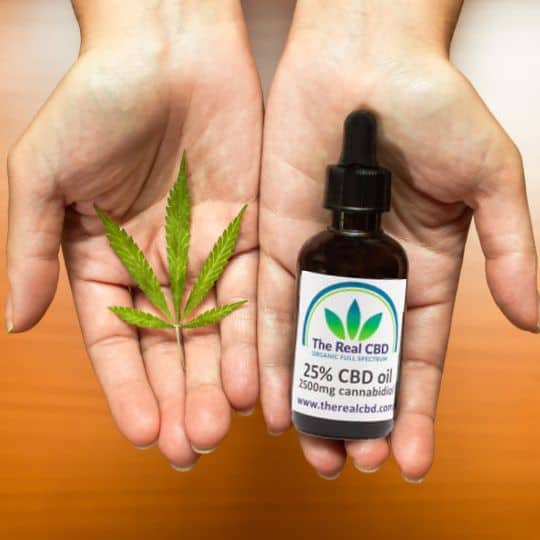
The safety of CBD (cannabidiol) for individuals with Cannabinoid Hyperemesis Syndrome (CHS) is a subject that requires careful consideration and consultation with a healthcare professional. Here, we'll provide some insights into the safety aspects of using CBD for CHS
1. Non-Psychoactive Nature
CBD is non-psychoactive, meaning it does not produce the “high” or euphoric effects associated with THC (tetrahydrocannabinol). This lack of psychoactivity is one of the reasons why many people turn to CBD for potential relief from various health issues, including CHS.
2. Minimal Side Effects
CBD is generally well-tolerated by most individuals and is associated with minimal side effects. Common side effects, if they occur, tend to be mild and can include dizziness, dry mouth, and changes in appetite. However, it is essential to note that individual responses to CBD may vary.
3. Potential for Symptom Relief
Some individuals with CHS have reported finding relief from their symptoms with CBD. This relief may include reduced nausea, vomiting, and abdominal discomfort. However, the effectiveness of CBD can vary from person to person.
Consultation with a Healthcare Professional
While CBD holds promise as a potential option for managing CHS symptoms, it is crucial to consult with a healthcare professional before using CBD, especially if you have CHS. Here are some key reasons for this consultation:

1. Individual Health Considerations
A healthcare provider can evaluate your specific health condition, medical history, and any medications you may be taking. This assessment is essential to ensure that CBD is a safe and appropriate choice for you, considering your unique circumstances.
2. Dosage and Administration
Determining the right CBD dosage and method of administration is crucial for symptom management. A healthcare professional can provide personalized recommendations tailored to your needs.
3. Monitoring and Adjustments
Regular monitoring of your CBD use and its impact on your CHS symptoms is essential. A healthcare provider can help you make any necessary adjustments to your CBD regimen based on your response.
4. Potential Interactions
CBD may interact with certain medications or medical conditions. A healthcare professional can identify any potential interactions and help you make informed decisions regarding CBD use.
Responsible CBD Use

If you and your doctor decide that CBD may be a good option for managing CHS symptoms, it is important to source high-quality CBD products from reputable manufacturers. Full-spectrum CBD products, which contain a range of cannabinoids and terpenes, are often recommended for their potential therapeutic benefits.
In conclusion, while CBD for cannabinoid hyperemesis syndrome may offer potential benefits for some individuals with CHS, its safety and effectiveness should be assessed on a case-by-case basis through consultation with a healthcare professional. Your healthcare provider can provide guidance, monitor your progress, and ensure that any CBD use aligns with your overall health and wellness goals. Your health and well-being are of paramount importance, and a healthcare expert can help you make informed decisions regarding CBD and CHS management.
Conclusion
Now you have heard of Cannabinoid Hyperemesis Syndrome (CHS). It is not well-known yet, but it's a real medical condition. CHS can affect people who have been heavy cannabis users. When someone has CHS, they might experience severe, uncontrollable vomiting. This might seem strange because cannabis is used to treat nausea, but sometimes, it can have the opposite effect on the stomach and brain.
We do not know exactly how common CHS is, and there is a lot more to learn about it. We need more research to understand how it develops, whom it affects the most, and how to treat it. One thing is clear, though: if someone has CHS, it is essential to help them stop using cannabis, as that can be a crucial step in managing this condition. Even though CBD is from the cannabis plant it can be very helpful in treatment of CHS. CBD for Cannabinoid Hyperemesis Syndrome is here to stay!
FAQ – CBD for CHS
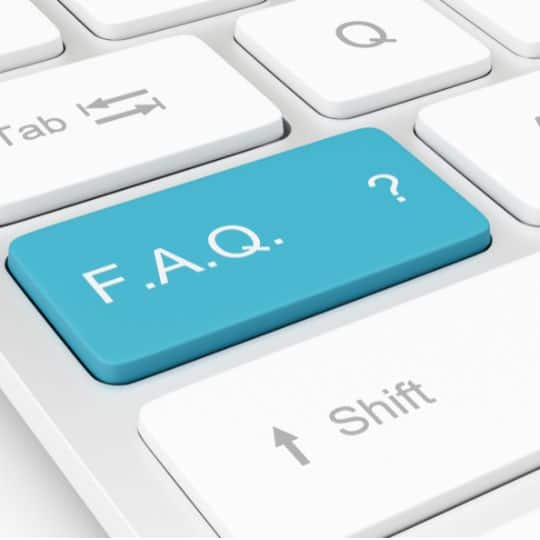
Cannabinoid Hyperemesis Syndrome, or CHS for short, is a condition associated with heavy and prolonged cannabis use. It's characterized by recurrent episodes of severe nausea, vomiting, and abdominal pain.
CHS typically has three phases:
Prodromal Phase: Mild, persistent nausea, morning vomiting, and abdominal discomfort.
Hyperemetic Phase: Intense nausea, frequent vomiting, and dehydration.
Recovery Phase: Symptoms subside, but some may return if cannabis is used again
Yes, CHS is primarily associated with long-term, heavy cannabis use. However, not everyone who uses cannabis will develop this syndrome.
THC, the psychoactive compound in cannabis, is believed to play a role in triggering CHS symptoms, although more research is needed to fully understand this relationship.
CBD, a non-psychoactive cannabinoid found in cannabis, has the potential to alleviate CHS symptoms. It may help with nausea, inflammation, anxiety, and restoring balance in the endocannabinoid system. However, consult a healthcare professional before using CBD for CHS.

I am a certified expert in Medicinal Cannabis. We are all about giving correct and trustworthy information. We know how important it is to learn about CBD and cannabis, which is why we want to be your go-to source for trustworthy information. We help you improve your health by using our knowledge and experience as a starting point.














Leave a Reply
Want to join the discussion?Feel free to contribute!